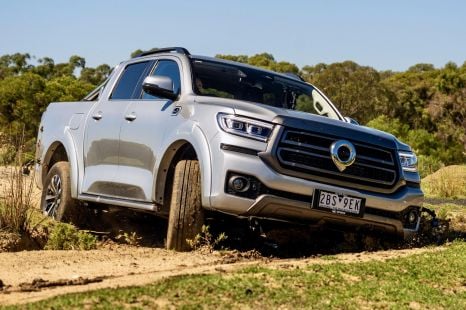

Max Davies
2026 GWM Cannon Ultra review
5 Days Ago
The only thing missing from the Cerato S is a Hertz tag on the keyring, but it's a fundamentally well-sorted sedan that covers all the basics.
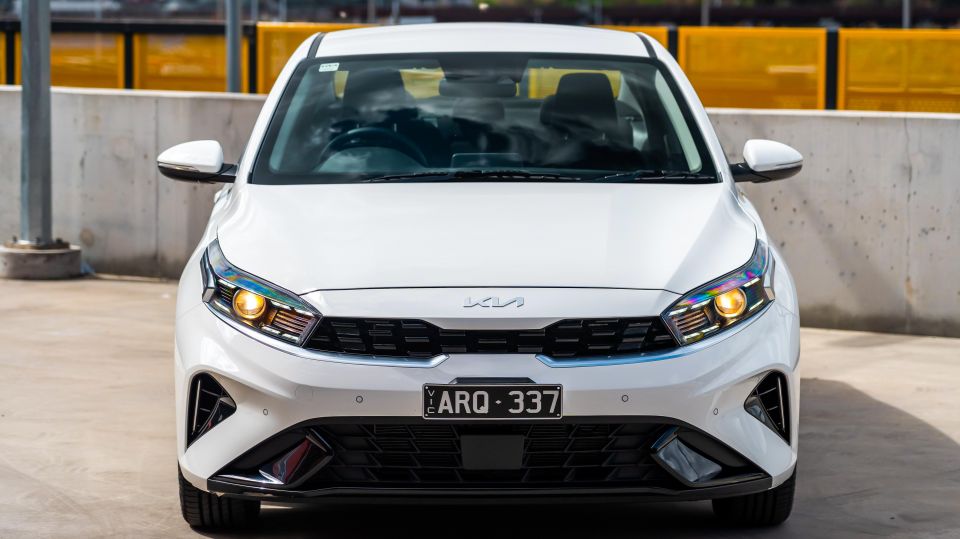
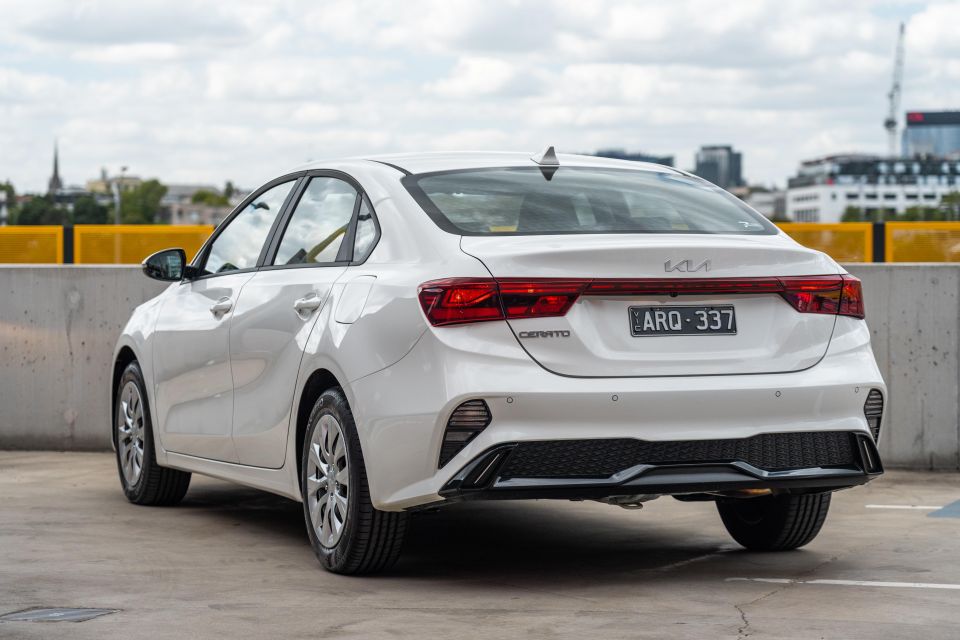

Quickly see how this car stacks up against its competition. Select any benchmark to see more details.
Where expert car reviews meet expert car buying – CarExpert gives you trusted advice, personalised service and real savings on your next new car.
There’s still a market for no-frills small sedans, or at least Kia thinks so with its base Cerato S.

While one might uncharitably call this car ‘rental spec’, in context it’s an increasingly uncommon product.
In an era of skyrocketing prices and customers slavering over the latest features and SUV body styles, it’s a throwback.
For someone after a basic no-fuss means of transportation with little room for flair, it remains one to shortlist.
This is the base Cerato grade, and costs the same as a sedan or as a more practical hatchback. But for those who missed the memo, the days of $19,990 small cars are long gone.
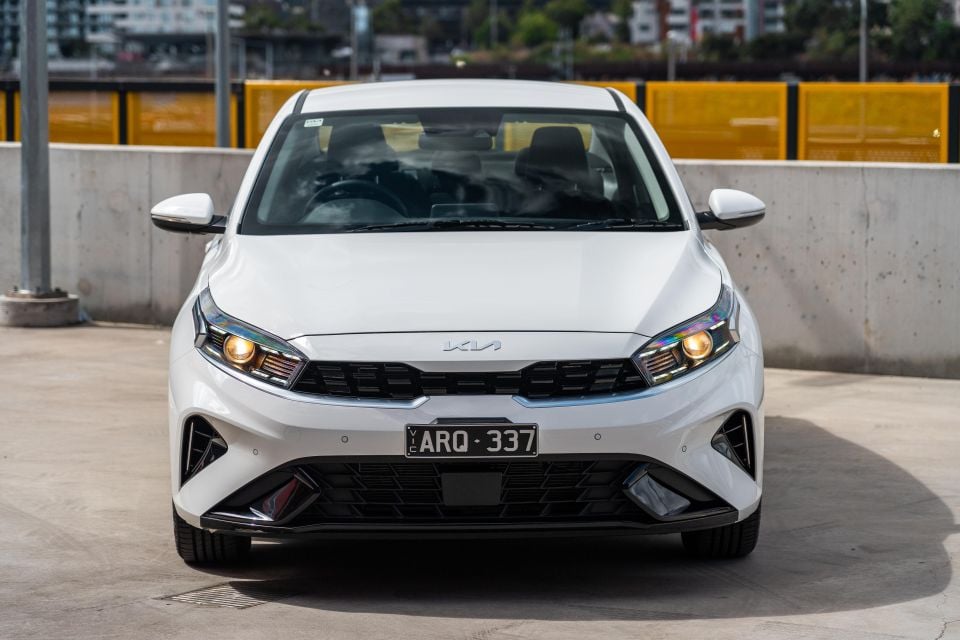
The Cerato S retails for $26,290 before on-road costs with a standard automatic transmission, which makes it the cheapest automatic sedan in its class.
Kia is currently offering manufacturer-backed national drive-away pricing for the Cerato range, further sharpening the value equation.
Our test model came with the optional Safety Pack, which adds a $1500 premium. Even still, it undercuts its competitors on a metal-for-money basis, coming in under $30k on the road.
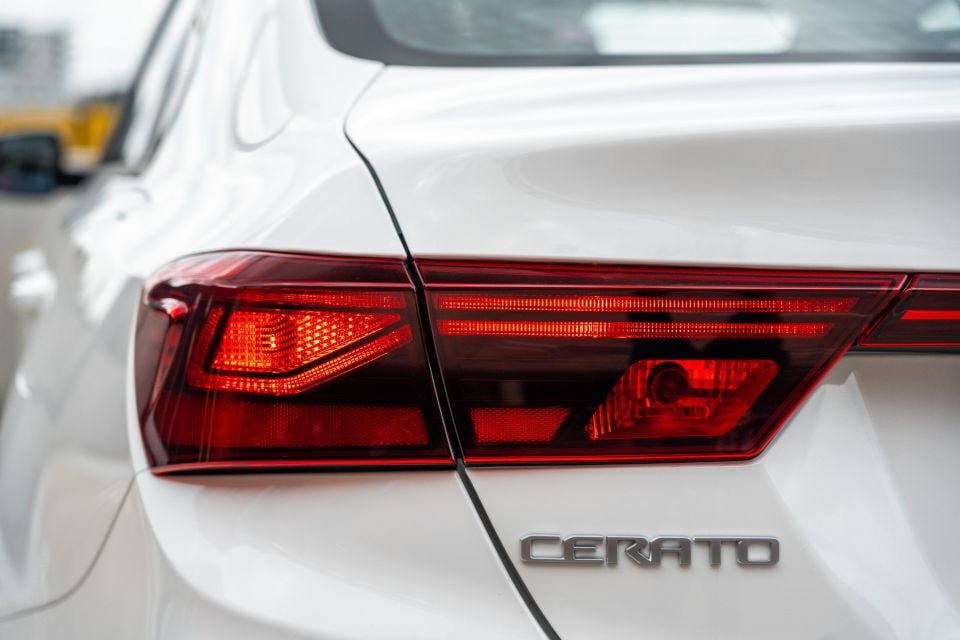
2023 Kia Cerato pricing:
Prices exclude on-road costs
2023 Kia Cerato drive-away pricing:
Key rivals include:
Prices are drive-away
Buy your new car without the stress. It's fast, simple and completely free.

Great service from Travis and team, second time I have used this business would not hesitate to recommend them to anyone
Craig C.
Purchased a Ford Ranger in Sunshine Coast, QLD
CarExpert helped Craig save $7,224 on his Ford Ranger, now let us save you on your next new car.
Get your BEST priceAs you may expect, there are lots of hard plastics and a fairly drab colour palette, but the build quality and fit-and-finish is of a reasonably high standard. Those rounded outboard vents also add a hint of design nous, do they not?
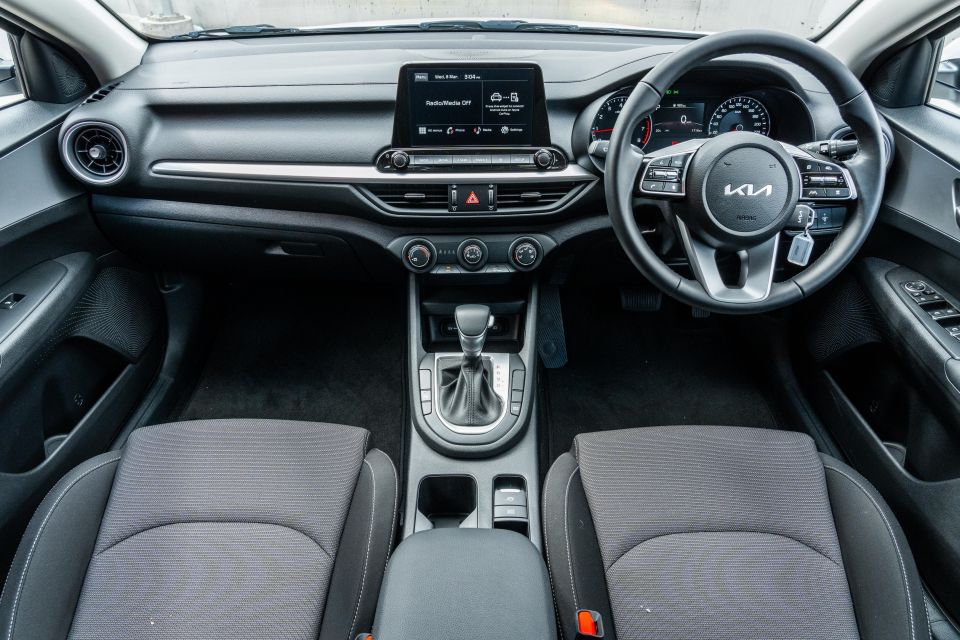
The cloth seats offer a decent breadth of manual movements (driver’s side fore/aft and up/down) and have a degree of side and thigh bolstering.
The Cerato’s driving position is good, seating you quite low in a sporting fashion – certainly compared to all the SUVs that now dominate the market.
You need to take the key from your pocket and press a button to get in, but the fob is nicely designed and easy to work in the dark. Starting the car requires you to put the key in the ignition barrel, which is increasingly uncommon.
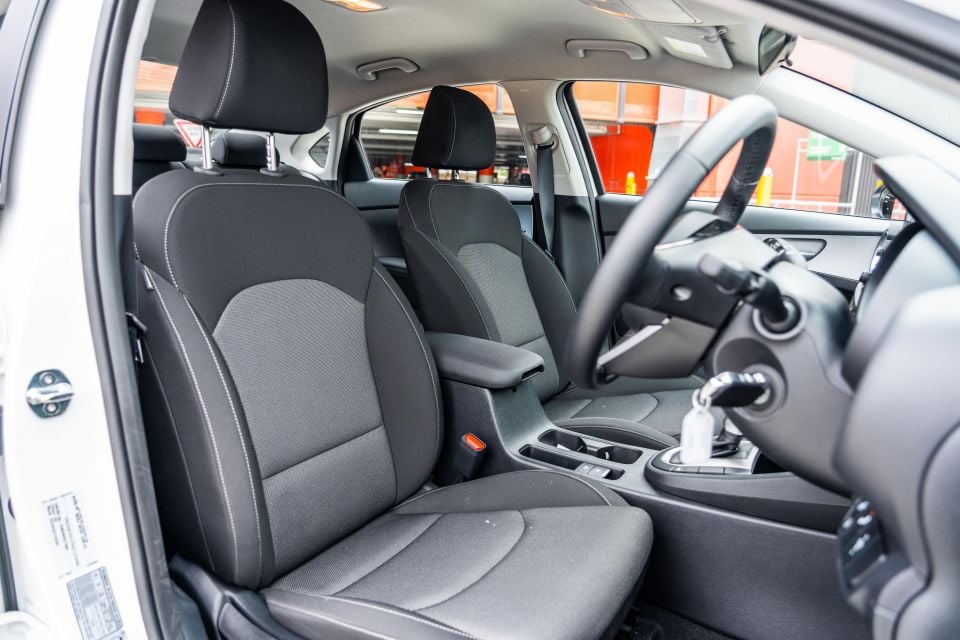
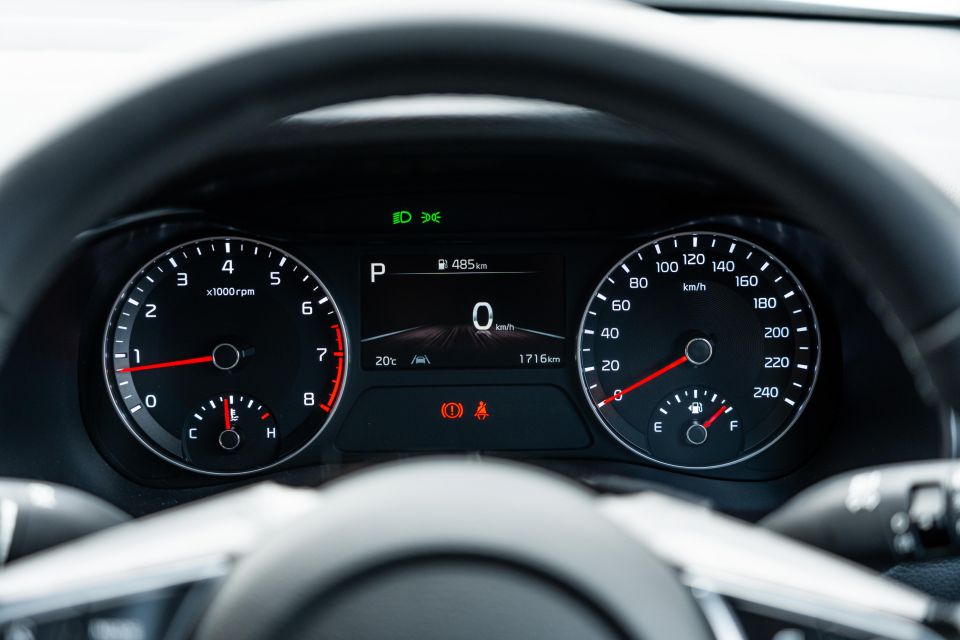
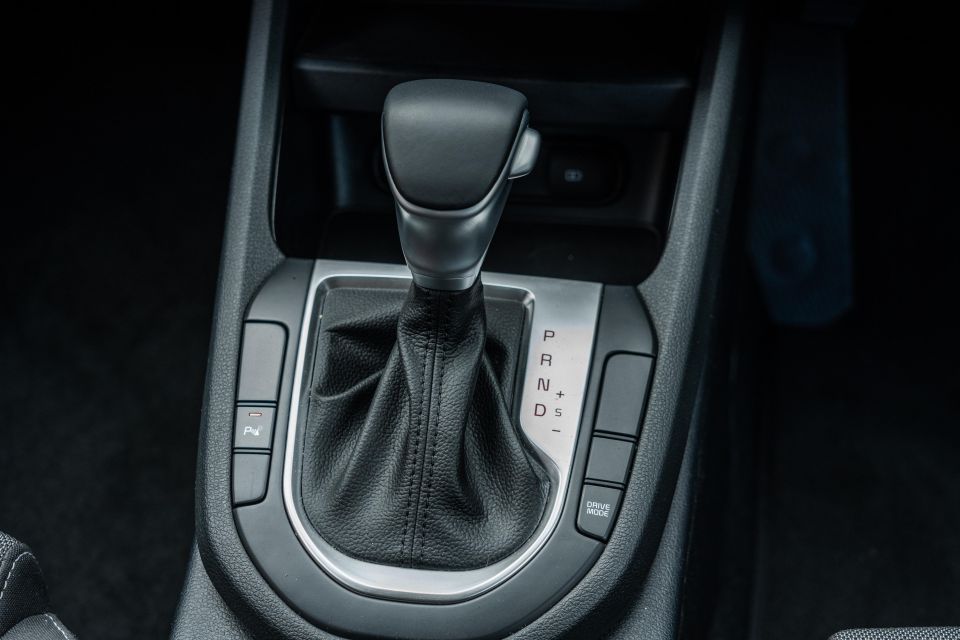
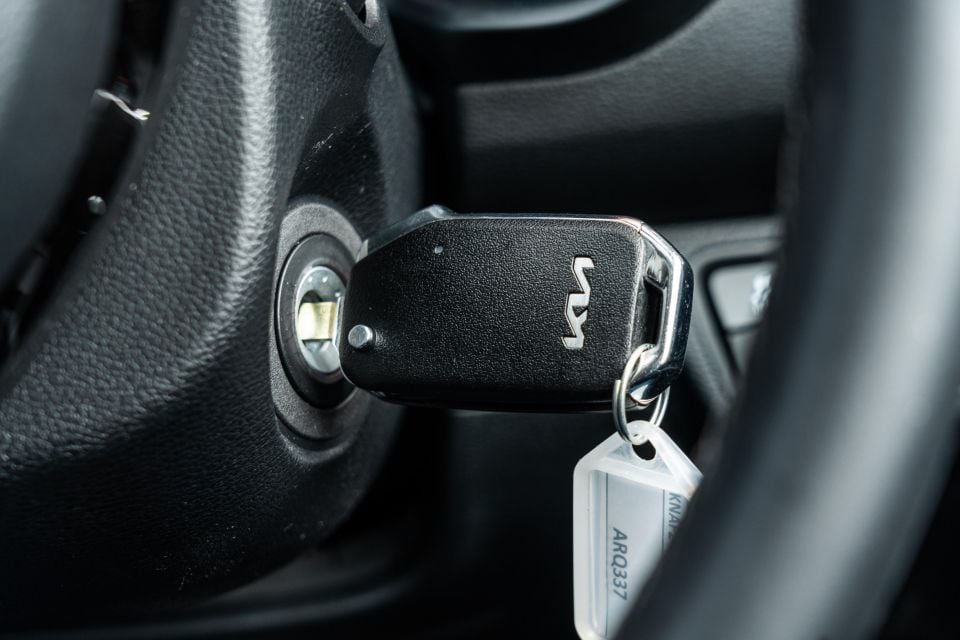
The base steering wheel is trimmed in cheap-feeling plastic, but the optional Safety Pack gives you a nicer leather-wrapped wheel (and gear shifter). I always say the steering wheel is your predominant touchpoint, so get a nice one.
Behind the wheel is a set of analogue gauges and a small trip computer that includes a digital speedometer. You can cycle through various menus using buttons on the right-hand wheel spoke.
The 8.0-inch touchscreen is pretty basic but offers wireless Apple CarPlay (which dropped out once or twice, annoyingly) and Android Auto; plus a reversing camera, AM/FM radio and Bluetooth/USB streaming.
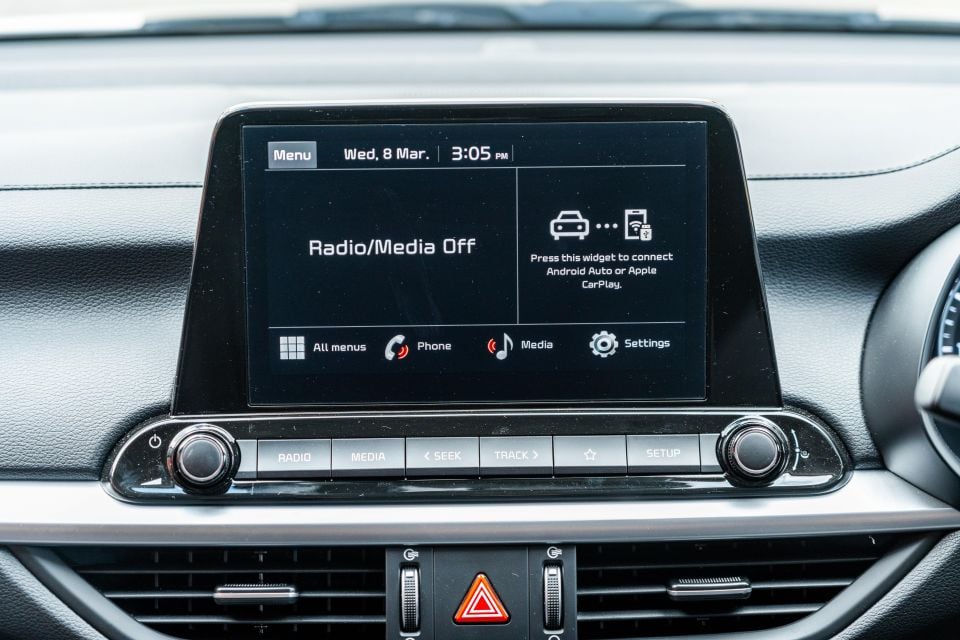
While it does the job, other Cerato variants upgrade you to a 10.25-inch screen with satellite navigation and a digital radio (DAB) receiver. This larger screen is as good a reason as any to step up into a Cerato Sport variant.
Below this sit a trio of easily operated rotary controls for the manual air-conditioning, while along the centre tunnel there is an electronic park brake (with Auto Hold) that frees up space.
Storage options are plentiful including bottle holders in the doors, a phone cubby under the air-conditioning controls next to two USB ports, centre cupholders, and a decent-sized console.
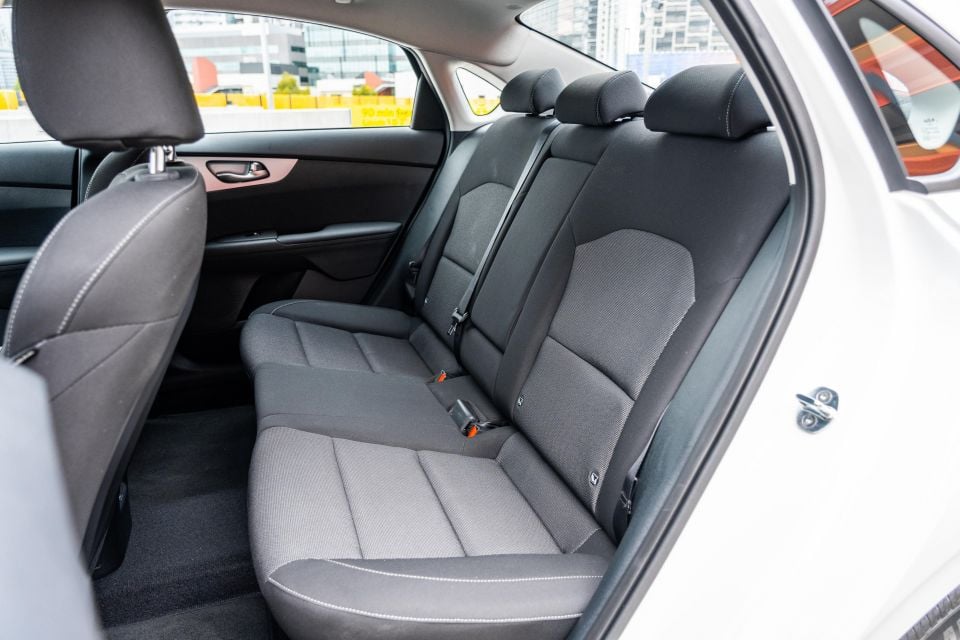
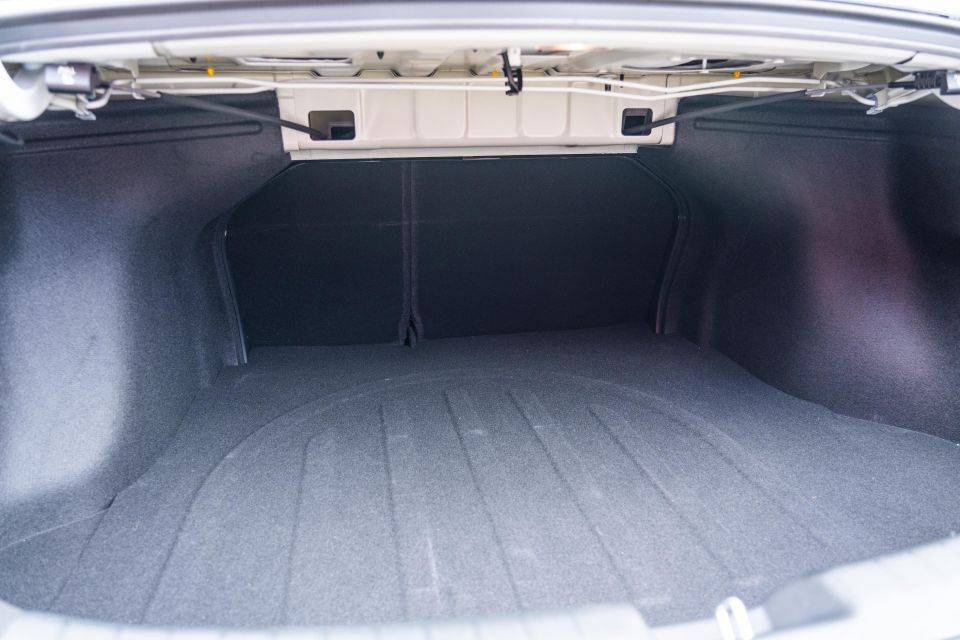
The back seats come with air vents and a USB port, and sufficient legroom and headroom for adults – I’m 194cm and could sit behind my driving position.
Just for a little context regarding the Cerato’s size, at 4640mm long it’s almost the same length as a 2004 Subaru Liberty (4665mm) which it its day was classified as a mid-size car.
The boot is pretty big at 502 litres (VDA) but if you want to load bulky items, the Cerato hatch offers a larger aperture.
A 2.0-litre naturally-aspirated petrol engine with 112kW of power and 192Nm of torque, driving the front wheels through a standard six-speed automatic transmission.
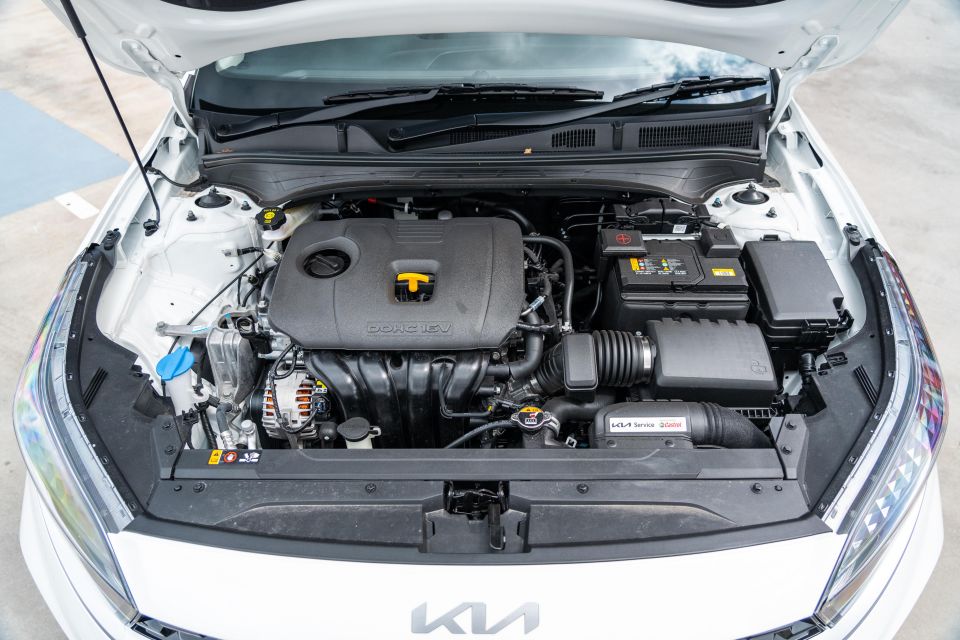
All Cerato models use this engine with the exception of the flagship GT with its 150kW/265Nm 1.6-litre turbo and seven-speed DCT.
Kia claims the Cerato S offers fuel consumption of 7.4 litres per 100km on the combined cycle in either body style, using 91 RON, The tank measures 50L.
Its rated towing capacity is 1100kg braked, enough for a small trailer.
The engine isn’t brimming with power and torque, but as with most naturally-aspirated powertrains offers a suitably immediate response to acceleration in stop/start traffic.
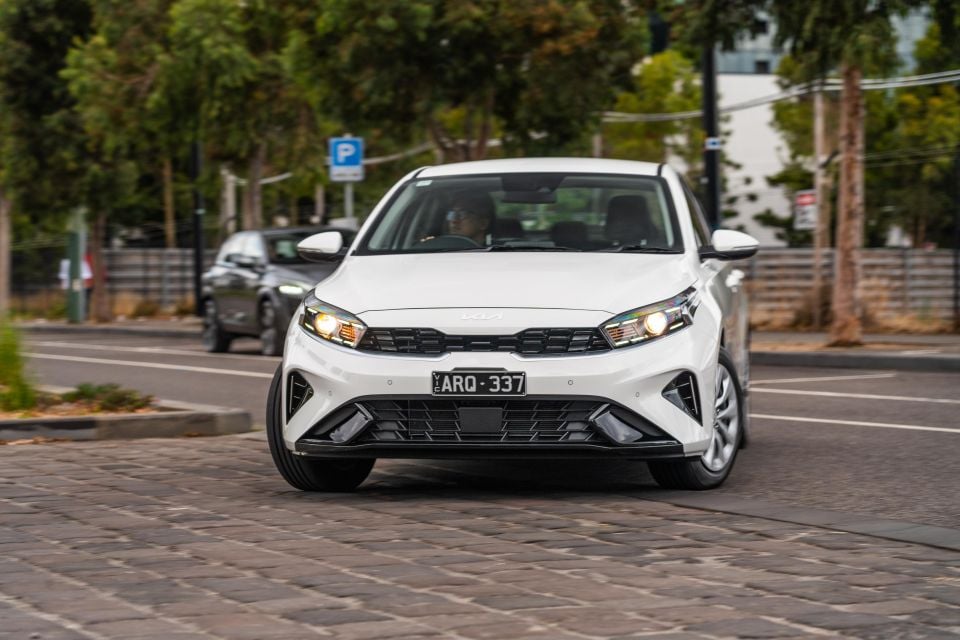
In general commuting it’s absolutely adequate, but if you do decide to sink your right foot there’s some harshness that creeps in.
The standard six-speed automatic transmission didn’t really miss a beat, and is more decisive down low than the GT’s dual-clutch unit.
While Kia claims combined-cycle fuel consumption of 7.4 litres per 100km, my 324.2km combined-cycle driving loop returned a figure of 8.7L/100km.
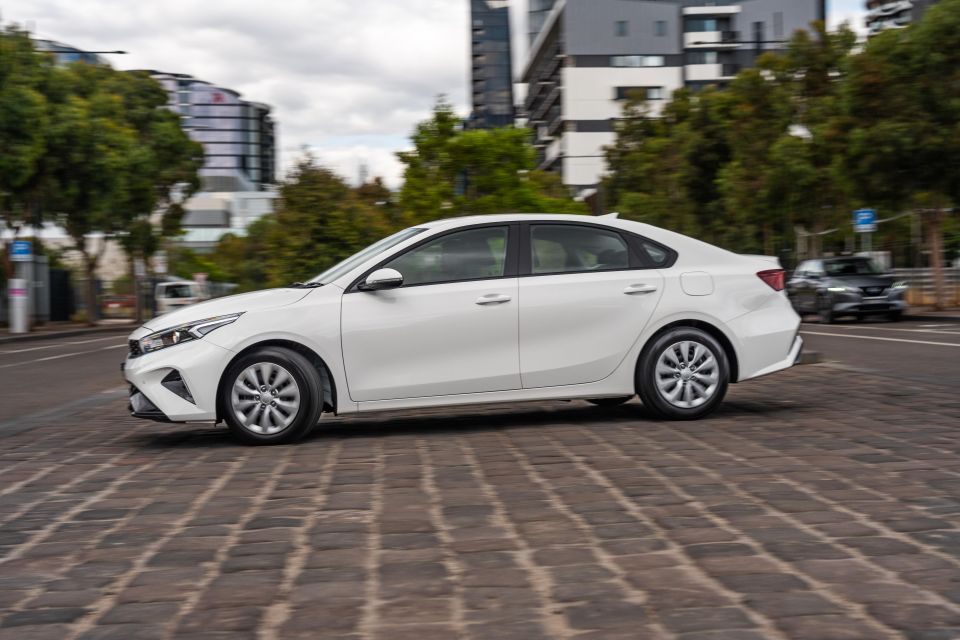
On the one hand that’s roughly double the fuel use you can expect from the more expensive Toyota Corolla Hybrid, but the Toyota in electrified guise is also about $6500 more expensive.
The Cerato uses motor-driven electric power steering, McPherson strut front and torsion beam rear suspension, as well as Kumho tyres.
Credit to Kia for actually injecting a dose of zip into the way the Cerato drives, despite its basic wheel and suspension package, by way of a sharp dynamic local tune.
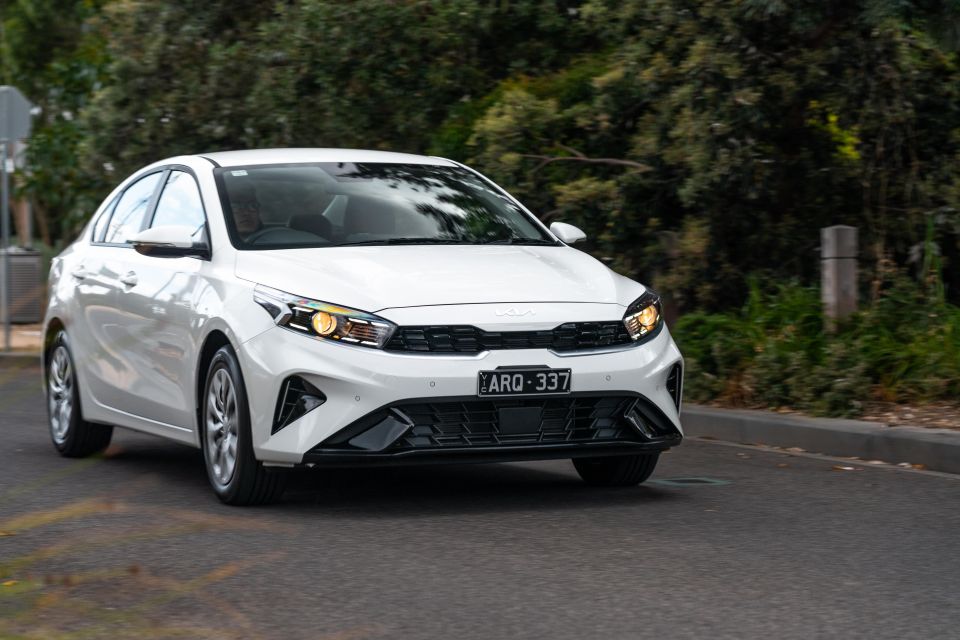
The steering is direct and well-weighted, the body control is flat, and the front end keen on turn-in. A sports sedan it isn’t, but there’s clearly some degree of polish here.
On the downside, there’s a little more tyre roar that permeates into the interior at speed, notably over coarse-chip bitumen common on regional roads.
The Safety Pack is a no-brainer really, given it adds blind-spot monitoring and adaptive cruise control – two of the more helpful driver-assist functions.
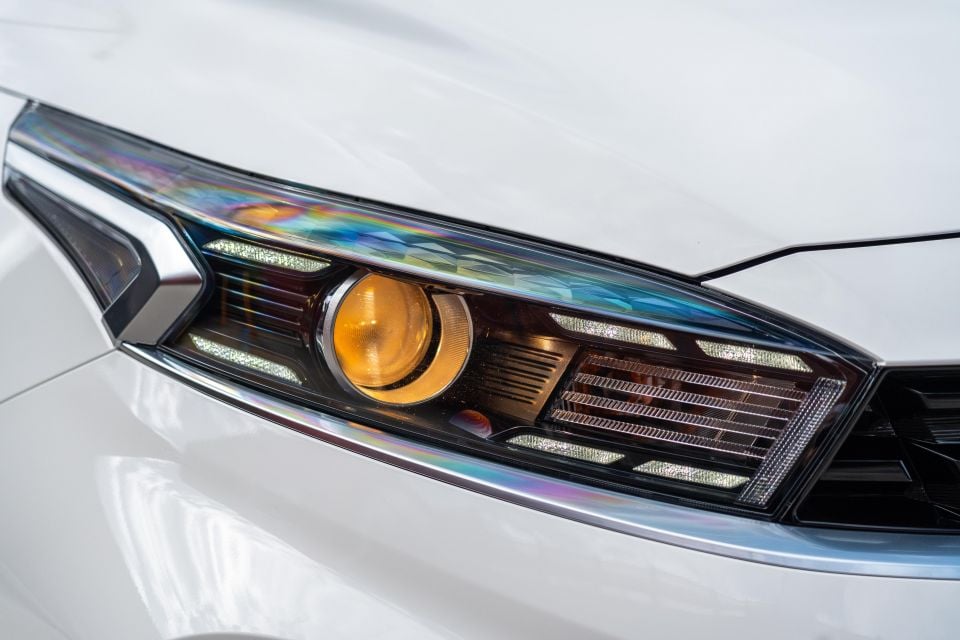



Outside
Inside
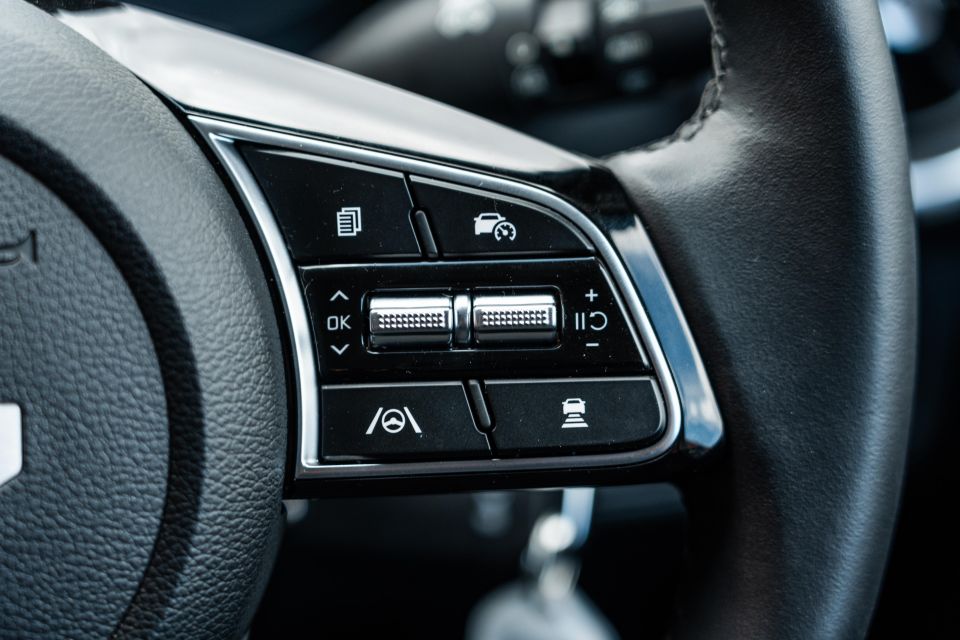
Where expert car reviews meet expert car buying – CarExpert gives you trusted advice, personalised service and real savings on your next new car.
Optional Safety Pack adds
While fleet and rental buyers will be fine with the bare bones, we’d just flag that for an additional $2000 you can upgrade to the Cerato Sport which adds desirable features such as different seat fabric, a larger 10.25-inch touchscreen, sat-nav, and 17-inch alloy wheels.
If you want the latest mod cons, read our 2023 Kia Cerato range price and spec breakdown.
Crash tester ANCAP gave the Cerato range a split rating.
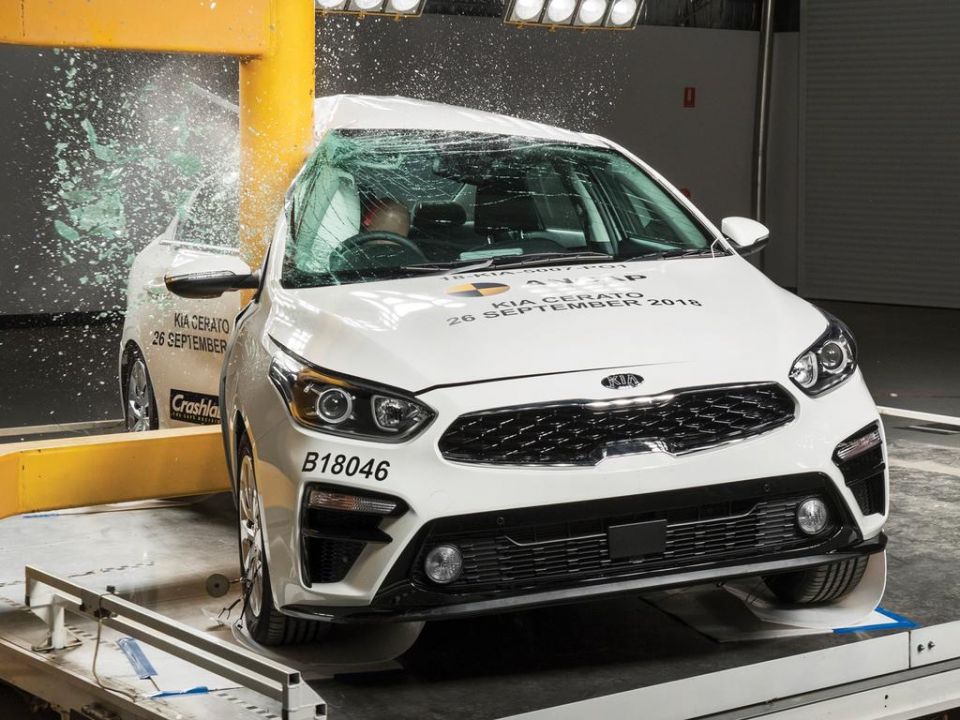
The Sport+ and GT are five-star rated (2019) but the base S and Sport wear a four-star rating (2019) unless optioned with the Safety Pack on account of its additional driver-assist features.
Standard safety features include:
Optional Safety Pack adds:
Kia provides a great seven-year, unlimited kilometre warranty, which is helpful with resale value.
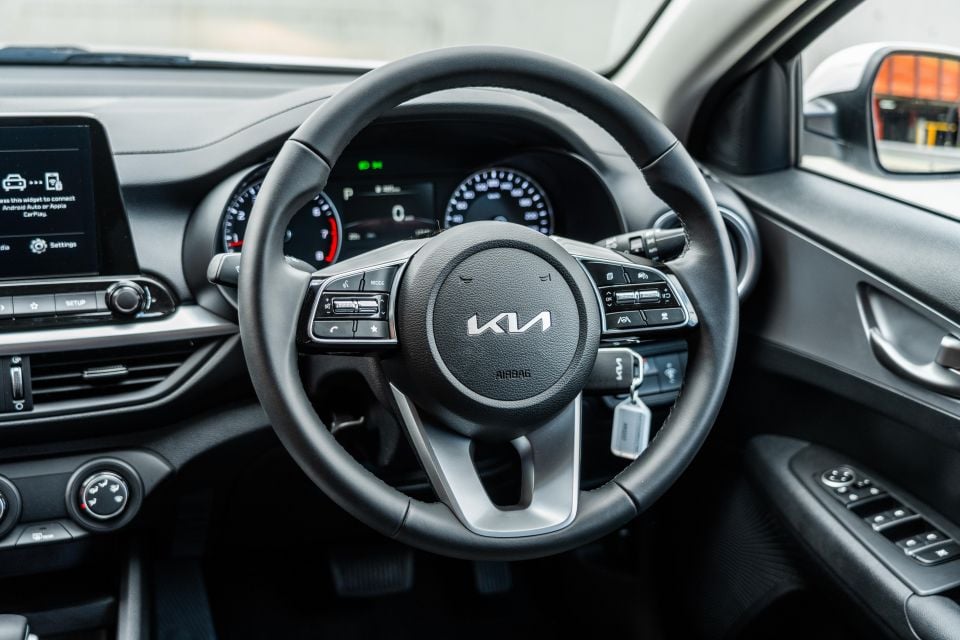
It also offers seven years of capped-price servicing should you opt to return to the dealer, but for such a basic engine it’s not the cheapest to maintain.
Kia Cerato service pricing:
Total: $2957
For a little context, the Corolla’s servicing intervals are the same but seven services are priced at $2288, which is 22 per cent cheaper.
The Kia service program does cover parts and lubricants, it doesn’t cover things like new tyres, brake pads, bulbs or drive belts – which all cost extra when needed. This is par for the course in the industry.
Buy your new car without the stress. It's fast, simple and completely free.

Great service from Travis and team, second time I have used this business would not hesitate to recommend them to anyone
Craig C.
Purchased a Ford Ranger in Sunshine Coast, QLD
CarExpert helped Craig save $7,224 on his Ford Ranger, now let us save you on your next new car.
Get your BEST priceNot many people are shopping for a basic white sedan these days, but for that reason there’s some value-for-money here – sure the Cerato isn’t as cheap as it once was, but what car is?
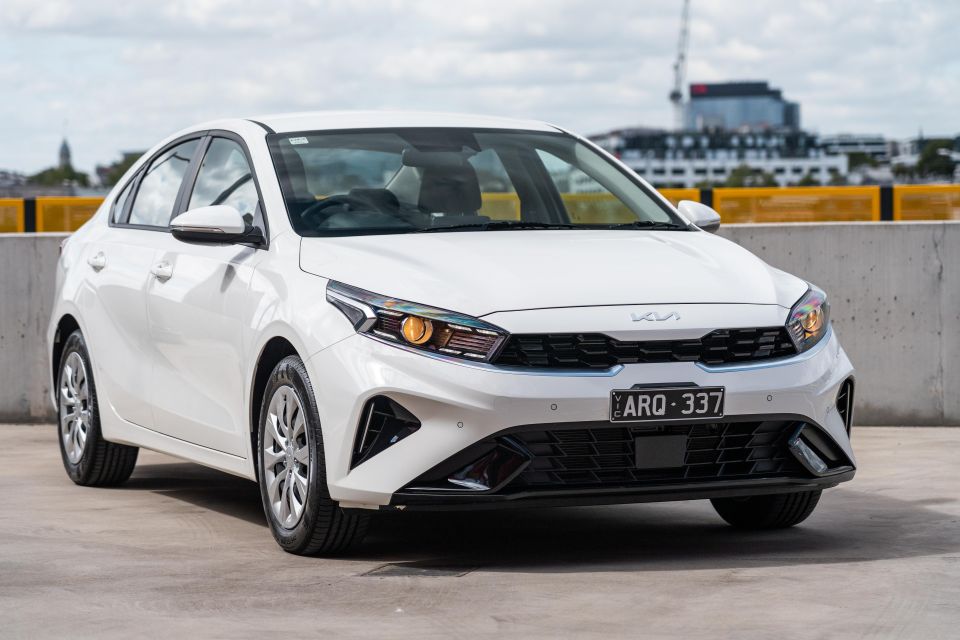
It’s popular for a reason, given it has a less polarising design than the edgy base Hyundai i30 Sedan, and costs less than a Toyota Corolla Ascent Sport or Mazda 3 G20 Pure.
We’d suggest private buyers step up to the Cerato Sport, which adds numerous desirable features that are worth the money.
But what the Cerato S shows is that this is a fundamentally well-sorted sedan that delivers on all the basics.

Click the images for the full gallery
MORE: Everything Kia Cerato
Where expert car reviews meet expert car buying – CarExpert gives you trusted advice, personalised service and real savings on your next new car.


Max Davies
5 Days Ago
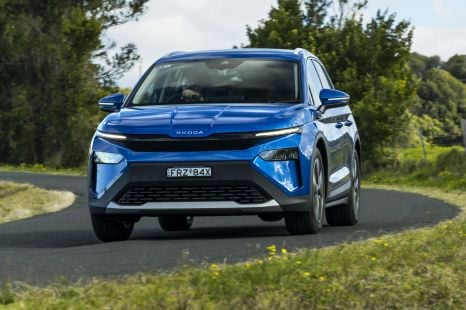

Josh Nevett
4 Days Ago
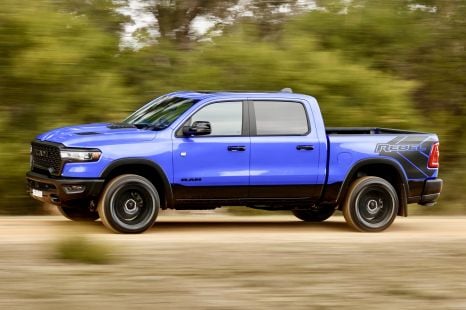

Max Davies
4 Days Ago
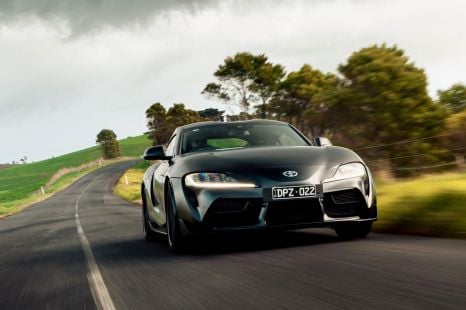

Max Davies
2 Days Ago
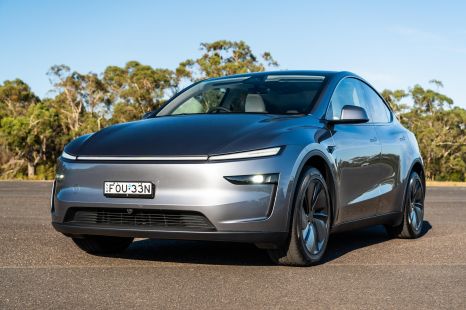

CarExpert.com.au
2 Days Ago
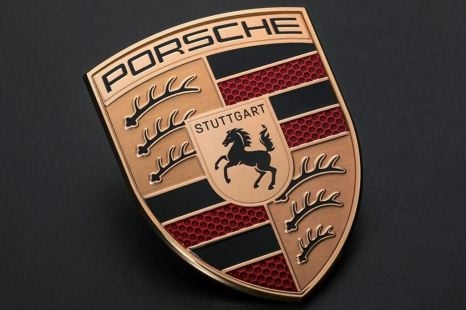

Damion Smy
2 Days Ago